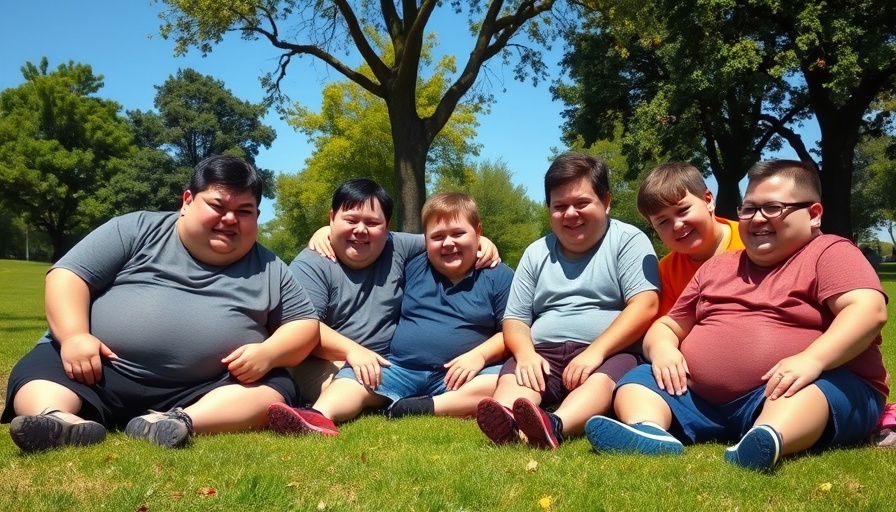
The Hidden Impact of Early Obesity: A Warning for Future Generations
Research from the University of Southampton reveals a concerning link between adolescent obesity in boys and epigenetic changes that could affect future children. This pioneering study highlights how harmful traits related to asthma, obesity, and lung function may be passed down through generations, bearing significant implications for public health.
Understanding Epigenetics: A New Frontier in Health
Epigenetics, the study of how genes can be switched on and off without altering the underlying DNA sequence, plays a crucial role in understanding the intergenerational consequences of obesity. The research in Communications Biology examined the epigenetic profiles of nearly 340 individuals, identifying over 2,000 distinct genetic markers influenced by the father's weight gain during puberty. This information sheds light on the biological mechanisms that could lead to increased risks for children's health based on their fathers' adolescent experiences.
Echoes of Obesity: The Effects on Women and Men
Interestingly, the study found that the epigenetic impact of fathers’ weight gain was more pronounced in female children than in males. This disparity suggests that gender may play a crucial role in how these genetic markers affect health later in life. Understanding these differences can pave the way for targeted health strategies that consider gender-specific vulnerabilities in managing childhood obesity and its long-term consequences.
The Urgent Need for Public Health Interventions
As obesity rates among adolescents rise globally, experts warn that failing to address this issue could entrench health inequities for decades. Professor Cecilie Svanes from the University of Bergen emphasizes that early intervention strategies are critical. This research highlights a fundamental shift in how we view childhood obesity not just as an individual health issue but as a public health crisis that reverberates through generations.
Positive Steps Towards a Healthier Future
While the findings may seem alarming, they also provide a vital opportunity for public health initiatives to promote healthier lifestyles among teenagers. Strategies that focus on education, such as improving healthy eating habits and incorporating daily fitness routines, can foster a culture of wellness among young people. Parents and educators should also encourage discussions about body image and nutrition, creating supportive environments for healthier choices.
Empower Yourself: Adoption of Healthy Lifestyle Habits
Given the revelations about the long-term effects of obesity, individuals are encouraged to take proactive steps towards improving their health. Simple lifestyle modifications—like adopting a balanced diet rich in whole foods, engaging in regular physical activity, and practicing mindfulness—can significantly enhance one’s well-being. Embracing the principles of holistic health not only benefits individual health but also contributes to breaking the cycle of obesity for future generations.
Conclusion: A Call to Action
It’s essential for young boys and their families to understand that their health choices today can significantly impact generations to come. If you or someone you know is struggling with weight, consider seeking support or consulting professionals who specialize in wellness. Remember, every small step you take towards a healthier lifestyle counts. Together, we can pave the way for a healthier future.
 Add Element
Add Element  Add Row
Add Row 



 Add Row
Add Row  Add
Add 


Write A Comment